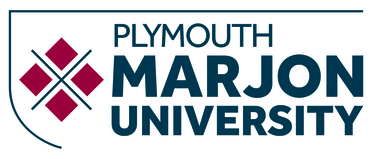The effectiveness of self-advocacy videos to inform enablers about the support needs of students with vision impairment
Swain, Gaby and Waddington, Jonathan (2022) The effectiveness of self-advocacy videos to inform enablers about the support needs of students with vision impairment. British Journal of Visual Impairment, 40 (2). 026461962097214. ISSN 0264-6196
|
Text
The effectiveness of self-advocacy videos to inform enablers about the support needs of students with vision impairment - FP.pdf - Accepted Version Available under License Creative Commons Attribution Non-commercial No Derivatives. Download (299kB) | Preview |
Abstract
The aim of this project was to understand how enablers (e.g. teaching assistants, paraprofessionals, support workers, etc.) access and use information about students with vision impairment (VI) to support them in specialist education. The one-page profile is used widely as a tool for learner-centred planning and information, and is generally seen to be effective and accessible. However more recent studies have demonstrated that video is an extremely effective medium for training and support in a range of settings. We investigated whether student self-advocacy video clips would be an effective and accessible medium for presenting information about students’ support needs. This study took the form of a pre- and post-questionnaire. The aim of the pre-questionnaire was to gauge current levels of enabler confidence and assess the effectiveness of existing methods of accessing learner information. 15 enablers were given this questionnaire to complete. Six students (aged 11-17) with VI and additional complex support needs were then each supported to develop a short video in which they expressed their support needs in an education setting. The enablers were asked to watch the video clips, and complete the post-questionnaire to assess the impact these videos had on their confidence and understanding. 12 out of the 15 enablers returned the second questionnaire. The questionnaire results demonstrated that current methods for accessing learner information were not wholly effective. Enablers found video to be a desirable and accessible format for presenting learner information. Participants found the medium of video to significantly aid retention and recollection of student information. From the findings it emerged that one-page profiles remained the preferred single method of accessing student information. However, overall, we found that enablers favoured a multi-method approach to presenting and accessing learner information that was dependent on time and context.
| Item Type: | Article |
|---|---|
| Depositing User: | Ms Raisa Burton |
| Date Deposited: | 24 Jan 2022 14:00 |
| Last Modified: | 21 Sep 2023 13:29 |
| URI: | https://marjon.repository.guildhe.ac.uk/id/eprint/17683 |
Actions (login required)
 |
Edit Item |

